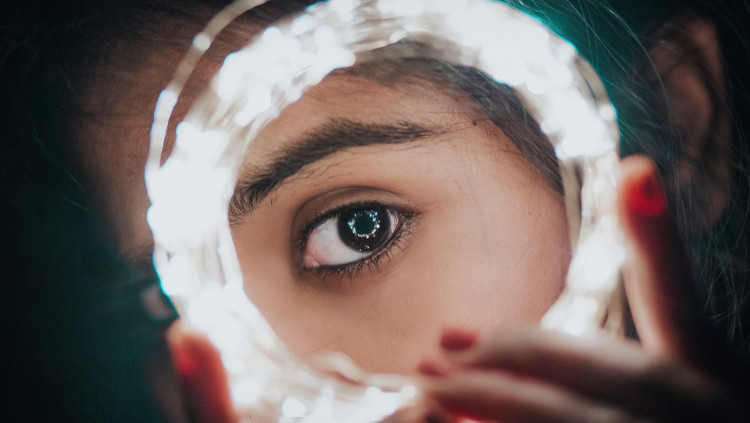Pigments make some people suffer from photophobia
The cause of some people with photophobia is because melanopsin in their retina is too sensitive to light.
In a study published in the journal of the National Academy of Sciences (PNAS) on September 28, scientists at the University of Pennsylvania, USA, discovered melanopsin pigments that are in the role of circadian rhythm control. as well as sending information to the visual cortex. It is a stimulant, causing discomfort for some people who are sensitive to light, according to Science Alert.
Many causes can make our eyes sensitive to glare, from sunburn inside the eyeball to retinal detachment, migraine or even meningitis. However, the detailed problems related to previous fear of photophobia are still not well understood.

People with photophobia have eyes that are too sensitive to light.(Photo: Medscape).
"Melanopsin is part of the human visual system in evolution. It controls some important biological reactions to light, " said lead researcher Manuel Spitschan.
The brain connects information from two types of cells in the eyeball with each other. Pigmented rod cells perceive the overall light intensity. Meanwhile, cones contain opsin pigments to sense color. Each opsin reacts with part of the visible light spectrum. Rods and cones act as pixels, helping us to observe the world continuously.
Interleaved between these pixels also have a small amount of receptor cells called photosensitive retinal ganglion cells (ipRGCs) containing melanopsin. The team used light pulses of a certain frequency to stimulate ipRGCs in the eyes of 20 volunteers, then they observed the reaction of the visual cortex thanks to functional magnetic resonance imaging (fMRI).
The results showed that volunteers saw an uncomfortable, blurred light in the visual field when light pulses stimulated ipRGCs. Some people report seeing colors, such as green or orange.
"The act of stimulating melanopsin makes the participants feel uncomfortable. Patients with photophobia may experience some stronger reactions to melanopsin," said Geoffrey K. Aguirre. The team member, said.
- Why does the autumn leaves change color?
- 3 misconceptions in eating many people suffer
- Masterpiece of painting with mummified mummies
- Why silver hair back?
- People with strong personalities are more likely to suffer from depression
- The 'unscientific' details commonly seen on TV can make you suffer!
- People with tinnitus are more emotional than ordinary people
- Lies are real creatures, but people are making them miserable
- Bacteria protect ancient paintings from bacteria that eat pigments
- Surprise with dazzling eggs for dinosaur camouflage
- Detects pigment Melanin to darken the skin
- The reason why some people suffer from wounds for a long time heals
 Green tea cleans teeth better than mouthwash?
Green tea cleans teeth better than mouthwash? Death kiss: This is why you should not let anyone kiss your baby's lips
Death kiss: This is why you should not let anyone kiss your baby's lips What is salmonellosis?
What is salmonellosis? Caution should be exercised when using aloe vera through eating and drinking
Caution should be exercised when using aloe vera through eating and drinking